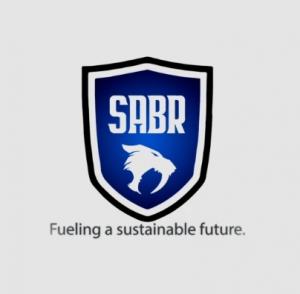SABR Coalition Urges Congressional Leaders to Save US Biodiesel Industry by Reinstating Blenders Tax Credit
With no implementing regulations for Section 45Z and the BTC expired for four months, the U.S. biodiesel industry is shut down and teetering on extinction.
JEFFERSON CITY, MO, UNITED STATES, April 30, 2025 /EINPresswire.com/ -- The Sustainable Advanced Biofuel Refiners (SABR) Coalition, a national biodiesel trade association made up of over 70 organizational members throughout the biodiesel value chain, sent a letter April 29 to congressional leaders urging them to retroactively reinstate the biodiesel blenders tax credit (BTC) from Jan. 1, 2025, through Dec. 31, 2026.
The expiration of the $1-per-gallon BTC, also known as Section 40A, and insufficient guidance on the new Section 45Z clean fuel production tax credit have effectively shut the biodiesel industry down, SABR stated in its letter.
“It is our understanding that there are parties seeking to modify or clarify the 45Z credit in the budget-reconciliation package,” the biodiesel association wrote. “We agree that Section 45Z indeed must be modified to correct its fundamental flaws, including the fact that it favors questionably sourced imported feedstocks over domestically produced agricultural feedstocks.”
The SABR Coalition stressed that even if 45Z is improved legislatively, it doesn’t resolve the main reason that the biodiesel industry is shut down, which is the lack of implementing regulations to govern the credit. In fact, this would start the clock over on getting those implementing regulations in place.
“We are almost five months into the first year in which the 45Z credit is in effect, and without sufficient guidance the results for the biodiesel industry have been disastrous,” the coalition stated, adding that there is, however, a simple solution to this policy vacuum.
“Congress can reinstate the 40A biodiesel blenders tax credit for 2025 and 2026 in order to buy time to resolve the outstanding issues related to the implementation of the 45Z credits,” the group wrote to House and Senate leaders. “Implementing regulations for Section 40A are already in place and have been for 20 years—the markets understand and rely on those regulations. Reinstatement of Section 40A would immediately turn the markets back on. This simple solution would save the biodiesel industry from its current path toward the annihilation of 20 years of public and private investment in domestic manufacturing, agriculture and fueling infrastructure, and it would save the economic and energy benefits of those investments in the country.”
Biodiesel plants across the country have shut down due to this unforgiving but correctable gap in federal policy between the BTC expiring and the implementation of 45Z regulations. Moreover, it’s not just biodiesel producers who are feeling the pain. The economic downturn in biodiesel is impacting industries—and individual Americans with families who own, manage or work for businesses in those sectors—across the entire spectrum of the value chain, from soybean farmers to glycerin buyers and everyone in between.
“We are hopeful leaders in Congress will do the right thing for this great, uniquely American energy industry,” said SABR CEO Joe Jobe. “The biodiesel sector sparked an economic revitalization in so many small towns across the Heartland over the past 20 years—it would be a tragedy of epic proportions to lose all of this because of unfortunate miscalculations in the timing of federal policy incentives.”
The letter was sent to House Speaker Mike Johnson, R-Louisiana; House Minority Leader Hakeem Jeffries, D-New York; Rep. Jason Smith, R-Missouri (ways and means committee chair); Rep. Richard Neal, D-Massachusetts (ranking member, ways and means); Senate Majority Leader John Thune, R-South Dakota; Senate Minority Leader Chuck Schumer, D-New York; Sen. Mike Crapo, R-Idaho (Senate finance committee chair); and Sen. Ron Wyden, D-Oregon (ranking member, Senate finance committee).
To read the full letter, click here.
About the SABR Coalition
SABR is a coalition of stakeholders that have invested in building out America’s first advanced biofuel—biodiesel. Biodiesel is the most cost-effective means to reduce greenhouse gas emissions from medium- and heavy-duty vehicles, providing numerous economic, environmental, performance and energy security benefits.
SABR represents every link in the biodiesel value chain from soybean farmers and processors to biodiesel producers, distributors, retailers and consumers, as well as infrastructure, product and service providers. For more information, please visit sabrcoalition.org.
Joe Jobe
Sustainable Advanced Biofuel Refiners (SABR) Coalition
+1 573-680-1948
joe@rockhouse.us
Legal Disclaimer:
EIN Presswire provides this news content "as is" without warranty of any kind. We do not accept any responsibility or liability for the accuracy, content, images, videos, licenses, completeness, legality, or reliability of the information contained in this article. If you have any complaints or copyright issues related to this article, kindly contact the author above.
Lawyers Using AI Could Replace Those Who Don’t, New Insights Suggest
Madrina Vegana's Erica Munoz announces Planted Culture Market NYC's Only Monthly Vegan Festival July 1st and 29th 4-9pm
All Things Chemical Podcast Features DOD's Patricia Underwood Discussing Existing Chemicals and the Defense Supply Chain
Kalendarium
Więcej ważnych informacji
 Jedynka Newserii
Jedynka Newserii

 Jedynka Newserii
Jedynka Newserii

Farmacja

Zagrożenie krztuścem pozostaje najwyższe od ponad trzech dekad. Odporność utrzymuje się do 10 lat po szczepieniu
W ubiegłym roku na krztusiec zachorowało ponad 32 tys. osób. To ok. 35 razy więcej niż rok wcześniej. Ostatnie tygodnie przynoszą wyhamowanie tendencji wzrostowej, ale Główny Inspektor Sanitarny przestrzega przed tą groźną chorobą i wskazuje na konieczność szczepień u dzieci już w okresie niemowlęcym i szczepień przypominających u dorosłych. Dużą rolę w promowaniu tej jedynej formy profilaktyki odgrywają pielęgniarki, które nie tylko informują o korzyściach ze szczepień, ale też mogą do nich kwalifikować.
Bankowość
Zdaniem 80 proc. Polaków ceny nieruchomości są wysokie lub bardzo wysokie. Mimo to i tak wolimy posiadać na własność, niż wynajmować

Tylko 26 proc. Polaków uważa, że mamy obecnie dobry moment na zakup nieruchomości. Dla ośmiu na 10 ankietowanych ceny nieruchomości są obecnie wysokie lub bardzo wysokie. 65 proc. ocenia też, że niewiele osób z ich otoczenia może sobie teraz pozwolić na zakup mieszkania lub domu – wynika z badania „To my. Polacy o nieruchomościach” portalu ogłoszeniowego Nieruchomosci-online.pl.
Transport
Nowe opłaty za emisję CO2 mogą spowodować wzrost kosztów wielu małych i średnich firm. Eksperci apelują o mądre instrumenty wsparcia [DEPESZA]

System ETS2, który zacznie obowiązywać od 2027 roku, nałoży podatek na paliwa kopalne wykorzystywane do ogrzewania budynków czy w transporcie. Koszty w dużej mierze poniosą dostawcy, w tym małe i średnie firmy. – Potencjalny wpływ systemu ETS2 na sektor MŚP w Polsce będzie znacznie mniej drastyczny, niż mogłoby się wydawać. Konieczne jest jednak przygotowanie odpowiednich instrumentów, które wesprą przedsiębiorców w przemianie w kierunku niskoemisyjnym, ale jednocześnie będą unikały podwójnej kompensacji – wskazuje raport WiseEuropa pt. „Wędka czy ryba? Wsparcie dla polskich MŚP w związku z wprowadzeniem ETS2”.
Partner serwisu
Szkolenia

Akademia Newserii
Akademia Newserii to projekt, w ramach którego najlepsi polscy dziennikarze biznesowi, giełdowi oraz lifestylowi, a także szkoleniowcy z wieloletnim doświadczeniem dzielą się swoją wiedzą nt. pracy z mediami.



![Nowe opłaty za emisję CO2 mogą spowodować wzrost kosztów wielu małych i średnich firm. Eksperci apelują o mądre instrumenty wsparcia [DEPESZA]](https://www.newseria.pl/files/1097841585/664-ciezarowki-postoj-foto2,w_85,_small.jpg)





.gif)

 |
| |
| |
|